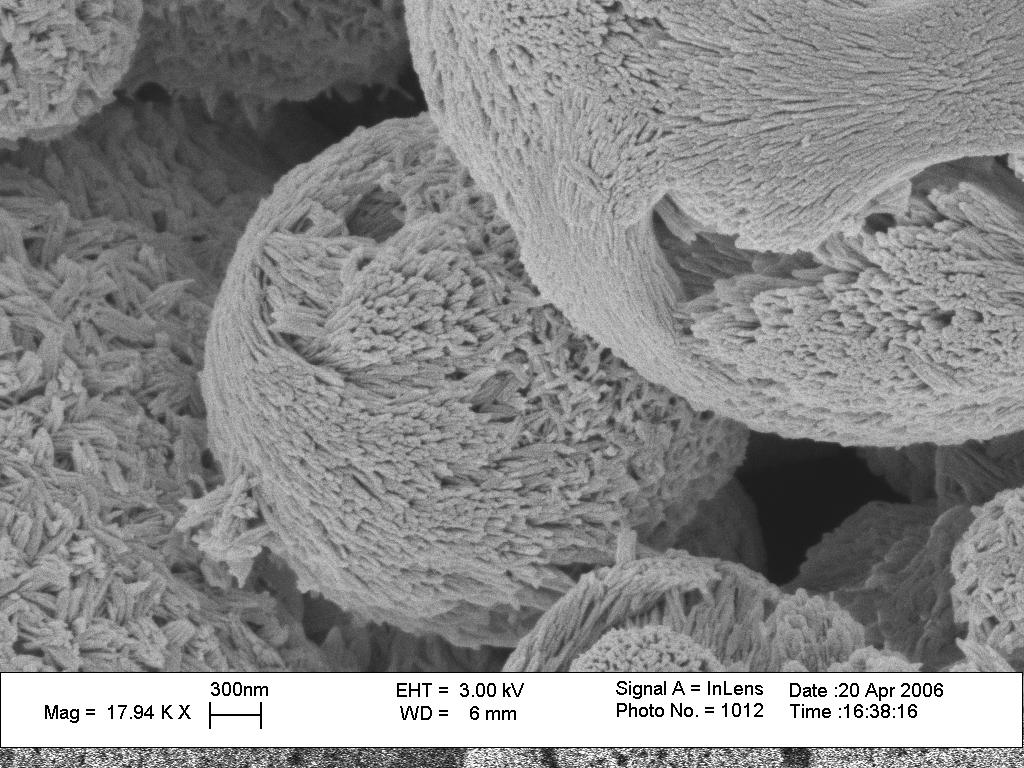162q Novel Nanosturctures of Polyaniline Via Interfacial Polymerization
Recently, chemical synthesis of one-dimensional nanostructures with hollow interiors has been an attractive subject of research due to their potential applications such as delivery vesicles for drugs, catalysis, energy storage, optics, electronics, and biology systems. In this research, we describe an simple interfacial polymerization method for synthesizing electrical conducting polyaniline nanoneedles and nanotubes. The mechanism and the kinetics of the polyaniline nanoneedles were studied. The diameter and morphology of polyaniline could be controlled by synthetic variables. It is very interest to note that the nanoneedles and nanotubes can self-assemble into microsized balls with a very unique alignment structure (see Figure 1) that have never been reported before. The self-assembly of the nanoneedles and tubes into microballs is also investigated.
Figure 1. Microballs formed by selfassembling of polyaniline nanoneedles.
